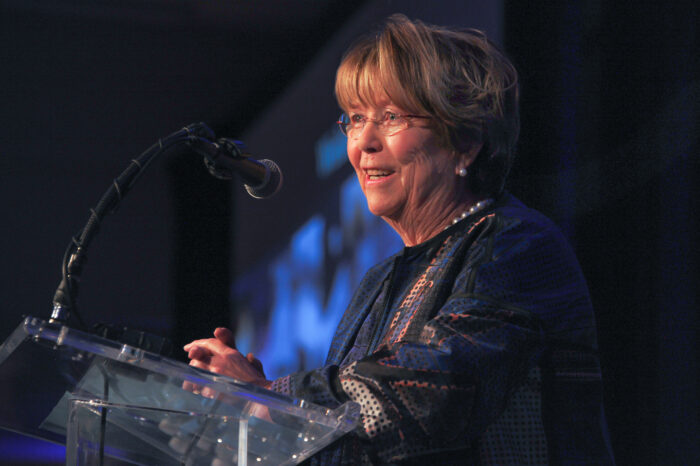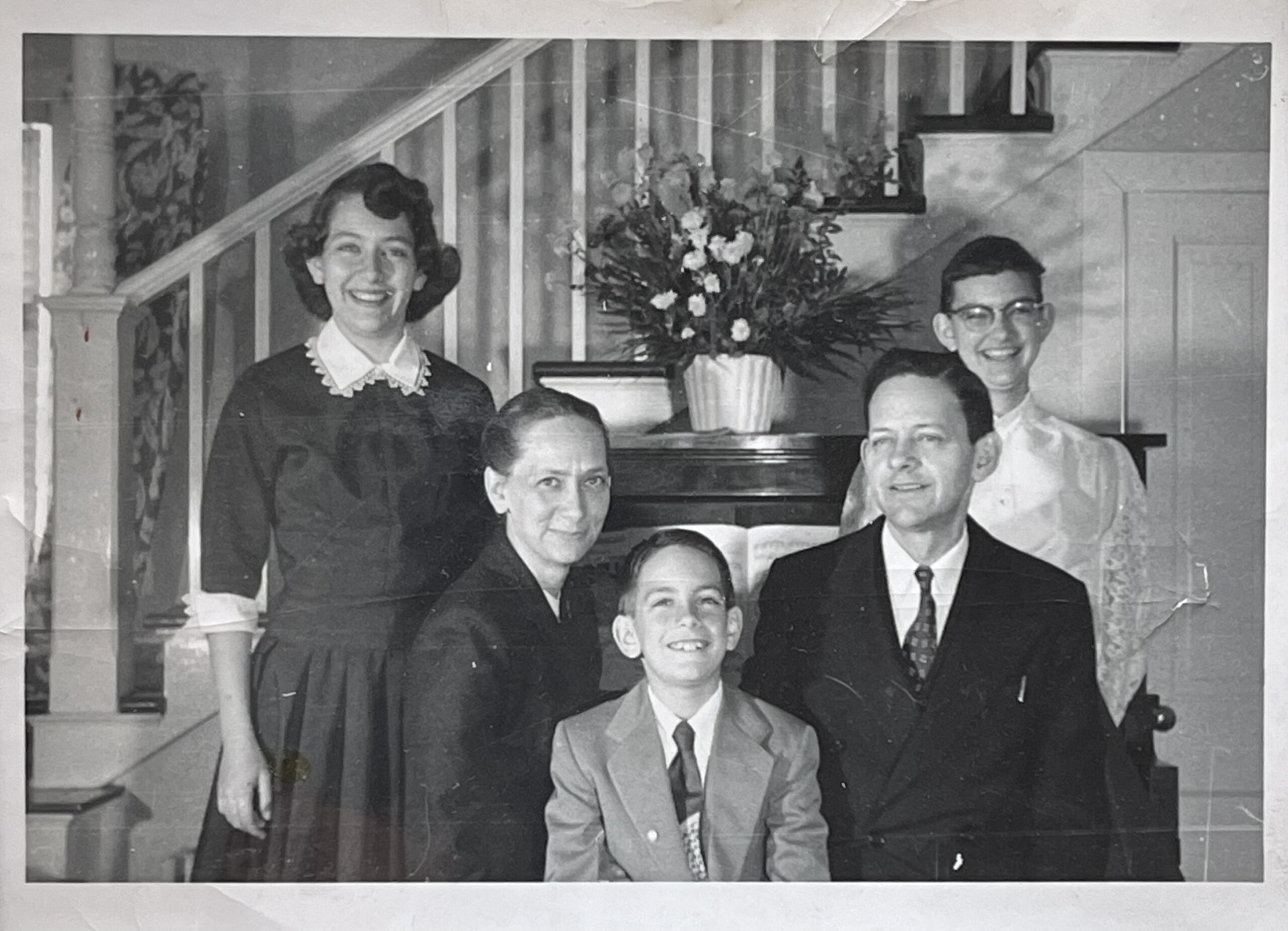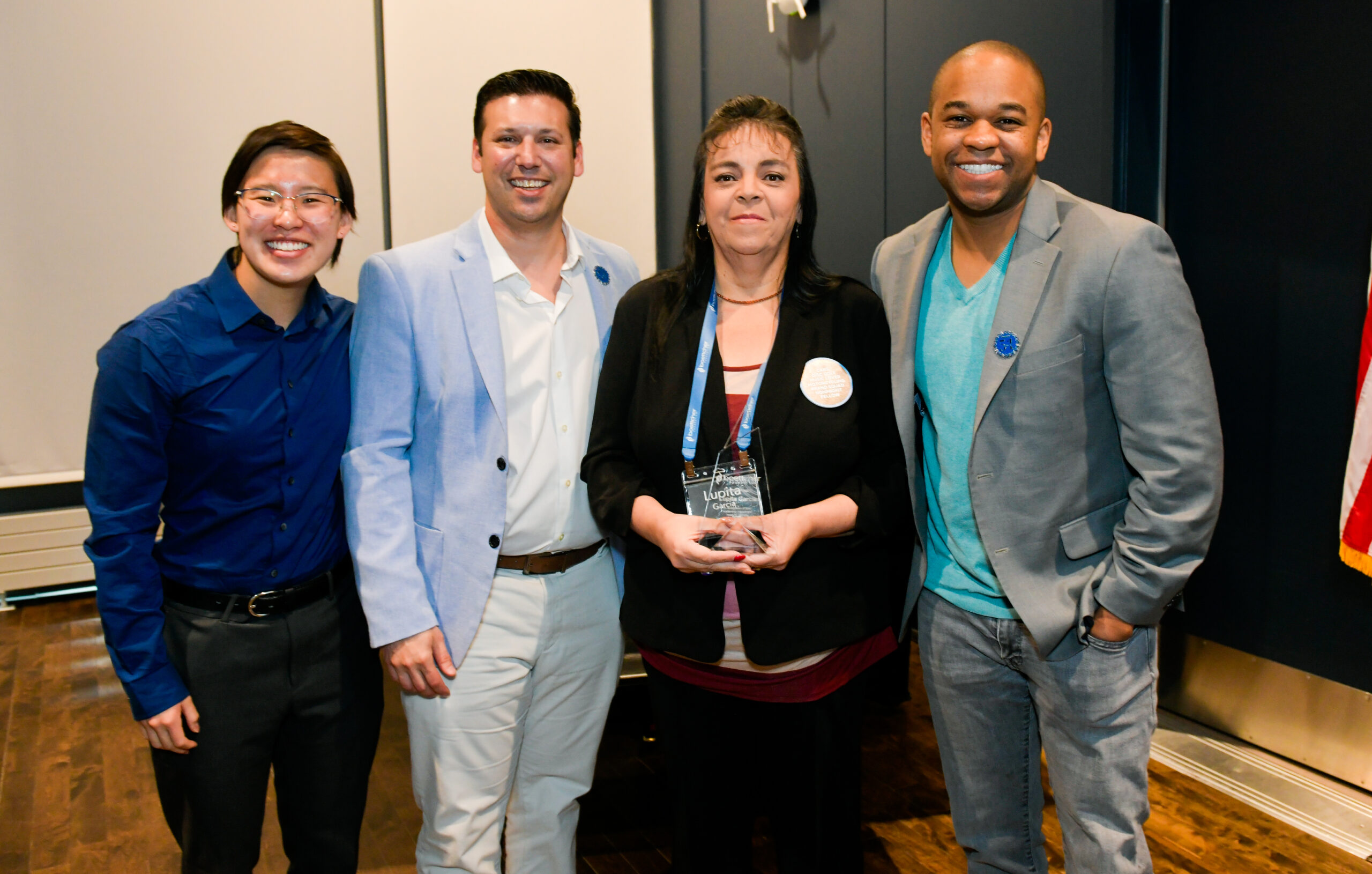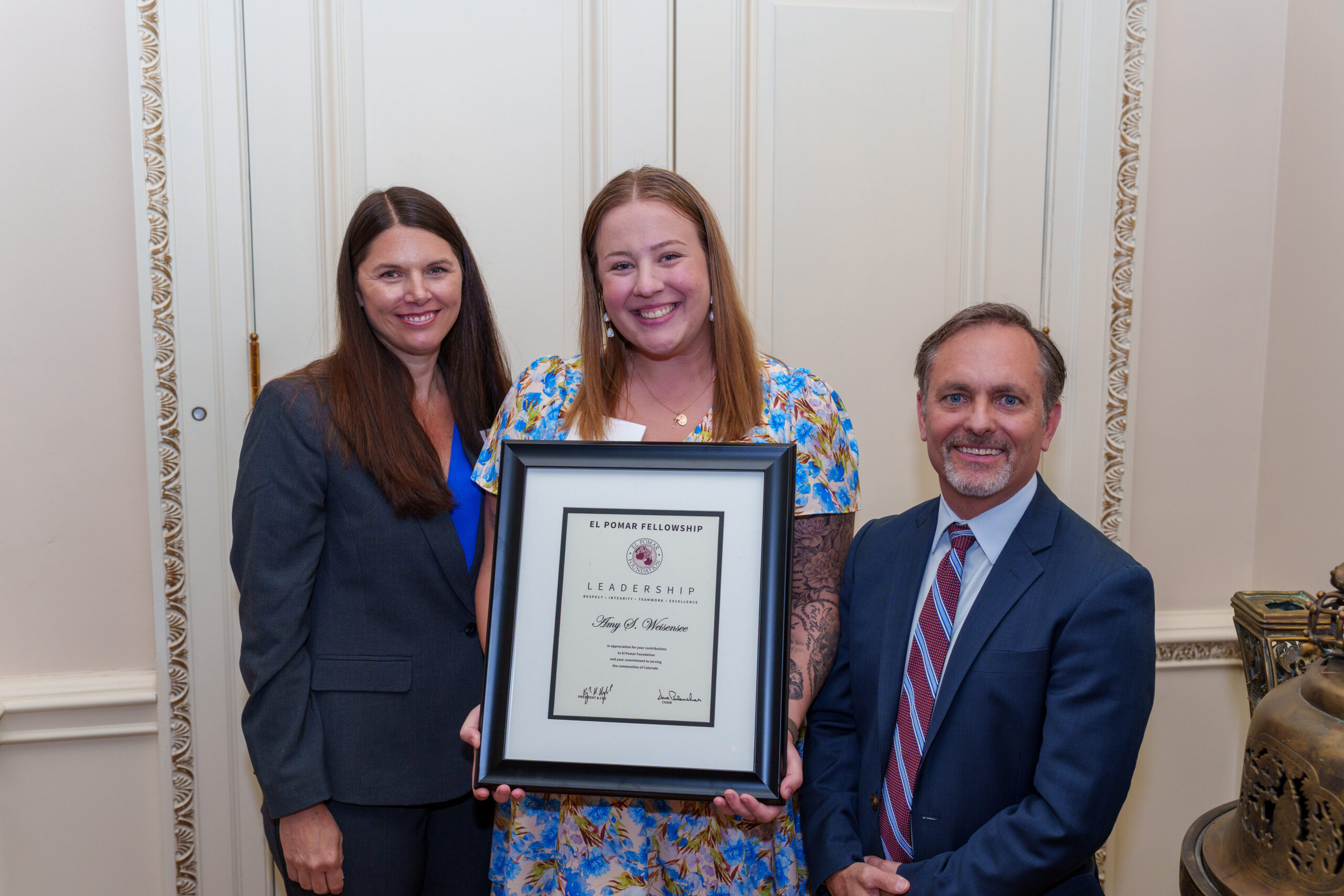Judi Wagner’s resume is barely over a page long. “You never want to have a long resume,” she says while reviewing her career with me over coffee on a bright, early-spring Colorado day. The unassuming piece of paper lists her involvement in single-spaced font, with generous margins.
But upon closer inspection of the document, and after dozens of references to her role as president and various other board positions, one begins to get the sense of Judi as an immeasurably talented leader whose impact has been felt in Colorado and by Coloradans for more than half a century.
To trace the entirety of Judi’s contributions would be a considerable feat, but a few of Judi’s most notable leadership successes include her role as president of a group of trailblazing women who founded the Women’s Bank of Denver, co-founder of Electing Women, a group dedicated to supporting women in their pursuit of our nation’s top political offices, and co-founder of the first university-based center for women’s health research, The Center for Women’s Health Research, at the University of Colorado Anschutz Medical Campus.
Born Judith Foster in Pennsylvania and raised in Fresno, California, Judi described what it was like being the oldest of 25 cousins in the same small town. She found herself as their de facto leader. “The first thing I did as the oldest cousin was to make all these little kids learn Christmas carols and make them play their tambourines, and stage them at Christmas time,” said Judi. “I think that was a blessing in a lot of ways, you get the idea of what leading is about. You know what works, what gets people motivated, and what makes them want to be part of it.”
In the same way that Judi taught her chorus of cousins to find their voice, so too has she advised boards, organizations, and causes to lead with a unified voice. While individual voices are unique on their own, it is when they are arranged that choirs can produce a powerful, unified harmony. Wherever she went, Judi brought the gift of consensus-building along with her, carving out a remarkable story of leadership and impact.
By the early 1970s, women were not guaranteed access to credit. In fact, in many instances, women were denied credit for no other reason than gender discrimination.
Leadership in Finance

Judi is a pathfinder in the field of finance. When she came to Colorado in 1972, Judi was the first women to work at the Boettcher & Co investment firm. As a research analyst, she formed relationships with banks, technology start-ups, and utilities across the Western United States. Learjet and StorageTek were among the young firms that she came to know. After the economic crash of 1971, Judi decided to venture out on her own. She formed Foster Management, the precursor to Wagner Investment Management, which was the first women-owned investment firm in Colorado.
Her focus was to build the financial independence of women.
This was supposed to change in 1974, when the Equal Credit Opportunity Act (ECOA) passed.
In Judi’s experience, it was still extremely hard for a woman to be granted credit, even after the ECOA became law. “The bankers were ignoring the law,” she said.
Predisposed to build consensus, Judi led a groundbreaking group of women who knew this was a great opportunity to establish a women’s bank that would ensure all women — married, single, divorced, and widowed — were able to access to financial independence.
Judi’s diplomatic leadership steered the effort to obtain a federal bank charter, raise the capital to start the bank, install high-quality, female leadership to run the bank, and navigate the various other processes that had never been successfully completed in Colorado.
The bank had to raise $2 million dollars in capital to launch. “I had no idea how to start a bank,” recalls Judi, with a laugh. “I just knew how to get the people interested and raise the money.”
On its opening day, the Women’s Bank of Denver pulled in $1 million in deposits, and $1 million more each week for the next 12 weeks. It was immediately profitable.
By 1982, assets of the Women’s Bank were $25 million, which made it the second largest women’s bank in the country, behind only the New York City version.
Leadership in Women’s Health Research
Judi’s leadership is certainly not confined to the financial industry. Along her journey, one of Judi’s clients pointed out the dearth of women’s health research. An idea was hatched among a few University of Colorado professors to establish a research institution dedicated solely to women’s health. Judi lent a helping hand to the efforts of the professors, helped fundraise, and broadened the vision and impact for the proposed research center.
Judi’s organizational efforts got the attention of the powers that be, which led to the funding, and ultimately the founding of first university-based center for women’s health research in the country, The Center for Women’s Health Research, at the University of Colorado Anschutz Medical Campus. While reflecting on this chapter, Judi mused, “Once you find someone that wants to do something, it is fun to lend a helping hand. I have really enjoyed it.”
Today, the Ludeman Family Center for Women’s Health Research is considered among the best places to conduct women’s health research, especially research that considers both biological and social differences in women.
Leadership in Electing Women
Judi has also played a central role in getting more women elected to powerful public offices in Colorado and the US.
After her friend and collaborator, former Colorado Lt. Gov. Gail Schoettler narrowly lost her gubernatorial bid in 1998, the two co-founded a project aimed at supporting women who are running for some of the top public offices in the country.
Bolstered by her gifts for consensus-building and fundraising, Judi says that by 2000, she was convening two to three events a year to raise money for candidates. Today that number is closer to 10-12 events a year to support women in US Senate and gubernatorial races.
While the organization started in Denver, Judi had bigger aspirations. “We thought this shouldn’t just be in Denver, this should be national.”
Thus, the Electing Women Alliance was born. More than a dozen groups across the country have been set up to fundraise in their own communities. Since its founding, Electing Women has contributed more than $2 million to more than 40 candidates, including 20 current and former women U.S. Senators, and five former governors.
Presently, helping maintain the success of this group, and looking ahead to where the grassroot effort can evolve, occupies a large part of Judi’s calendar.
At the end of our conversation, I asked Judi what she had on her agenda for the rest of the day. “We are hosting the First Lady at 3 p.m., so I better prepare for that.” I immediately looked at my watch, concerned about how much time she had to prepare, and jokingly asked her: “Well, what are you doing having coffee with me?” She chuckled, and said “just a coincidence.”

Aligning the Stars
One thing I noticed about Judi is her modesty. As our conversation bounced from discussing one of her contributions to the next, she would often chalk it up to “good luck” or “coincidence.” Whether it was her being hired at a certain job, meeting a certain person at the right time, or getting an initiative successfully off the ground, Judi summed it up with “there’s been a real lot of luck in my life.”
But we all know that it takes preparation and hard work to make a transformative difference.
“I think I am basically a shy person,” she added, after I noted her modesty, “even though I am very curious.”
Her curiosity is a superpower. That was evident in her formative years in investment research, travelling across the country and learning about new technologies. Importantly, I believe it also led her to discover and develop the untapped potential of certain people, initiatives, and ideas.
Interestingly, when I would ask “how did you get that started?” or “how did that happen?” she would often refer to a run-in with a friend, a conversation at a Christmas party, a walk with a neighbor, or other seemingly simple encounters. In those anecdotes, it’s clear that her leadership is very approachable. As she listened to the ideas of those around her, I imagine Judi’s curiosity led her to wonder: what if the stars aligned for this idea?
Of course, it is exceedingly helpful that Judi also had the talent for aligning those stars.
“Once you’ve started something, and you see what good it’s doing, it makes such a difference — you just want to stay involved,” said Judi. Through modest, consensus-building and diplomacy, combined with the hard work, and a little luck, Judi Wagner has made a transformational impact on the world.
The Colorado Leadership Stories Project, part of Boettcher’s COLead initiative, celebrates leadership in Colorado by telling the stories of all Colorado leaders. Judi noted that telling the stories of women specifically is critical to the efforts of getting more women placed in leadership positions. Telling stories inspires us, and it makes us see ourselves in other people’s shoes. Judi believes that there are a lot of hard-working, visionary women leaders who are undiscovered. Hopefully by telling her story, we can inspire the next generation of leaders.




